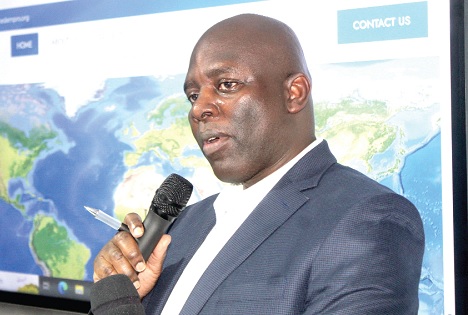
Guidelines needed to invalidate election results — Dr Osae-Kwapong
A democracy fellow at the Ghana Centre for Democratic Development (CDD-Ghana), Dr John Osae-Kwapong, has called for specific guidelines on how to invalidate a declaration of elections and consistently apply it to all cases.
“The situation we need to avoid is creating a loophole for a future Electoral Commission (EC), who, dissatisfied with the outcome of an election because of a hidden preference, invokes the law to invalidate declared results in the final collation process,” he stated.
Expressing his views on the recollation of seven parliamentary results in an interview, Dr Osae-Kwapong stated that well-crafted administrative rules should enable action but also restrain administrative overreach.
Resolution
Dr Osae-Kwapong said resolving those things administratively would always be his first preference.
“However, if the administrative actions of the EC are violations of the law, then it is proper for the courts to step in or the political parties should invoke the jurisdiction of the court,” he said.
He said the EC's contention was that issues such as not collating all polling stations plus various acts of violence gave it the basis to invalidate declarations and instruct recollation, hence parties must restrain themselves from engaging in violent conduct.
Trust issues
The governance expert said the exercise further highlighted the need for greater cooperation between the EC and political parties who already felt the need to engage in extrajudicial activities during elections, all in the name of protecting the ballot.
“The deepening mistrust, narratives of a compromised EC and allegations of rigging, all combine to signal that the freeness and fairness of elections cannot be left solely to the election management body,” he pointed out.
That, he said, further weakened the institution and eroded trust in the EC, the body charged with conducting and supervising elections.
Dr Osae-Kwapong, who is also the Director of the Democracy Project, insisted that if only nine out of 276 had issues, then generally the elections were smooth and peaceful.
“But it is also the deviant cases that end up creating problems and can have serious consequences for post-election security.
“The recollation, especially as it has resulted in different winners compared to what happened at the constituency declaration, further deepens mistrust in the electoral process,” he stated.
Anomalies
Dr Osae-Kwapong contended that if there were anomalies in the earlier declarations which tainted the process, they must be rectified.
“The question is where and how do they get rectified? Today's exercise raises three key things for us, namely the role of the courts in resolving electoral disputes as it pertains to the administrative process of collating and declaring results.
“The role of the EC and the guidelines for collating and recollating results in terms of what any law governing elections allow the EC to do and not do; the role of political parties, their supporters and finding common ground with the EC to ensure smooth processes which is an issue of mistrust,” he said.
Stakeholder engagement
Contributing to the discussion, a political scientist, Dr Samuel Kofi Darkwa, said if the EC were to carry out the court orders, it would require stakeholder engagement.
“That is, if the court writes to the EC, the EC has to share that directive with the security task force, the incoming and the outgoing administrations, the political parties, and possibly civil society organisations and development partners, given the high stakes of those results,” he said.
The political scientist said it was important to distinguish between cases necessitating recollation due to illegal interruptions that hindered results declaration and those involving unlawful declarations that should be resolved in a court of law.
He said the EC’s position that the collation process was impeded by political party supporters, leading to incidents of vandalism that destroyed essential election materials and posed threats to EC staff could not be overlooked.
